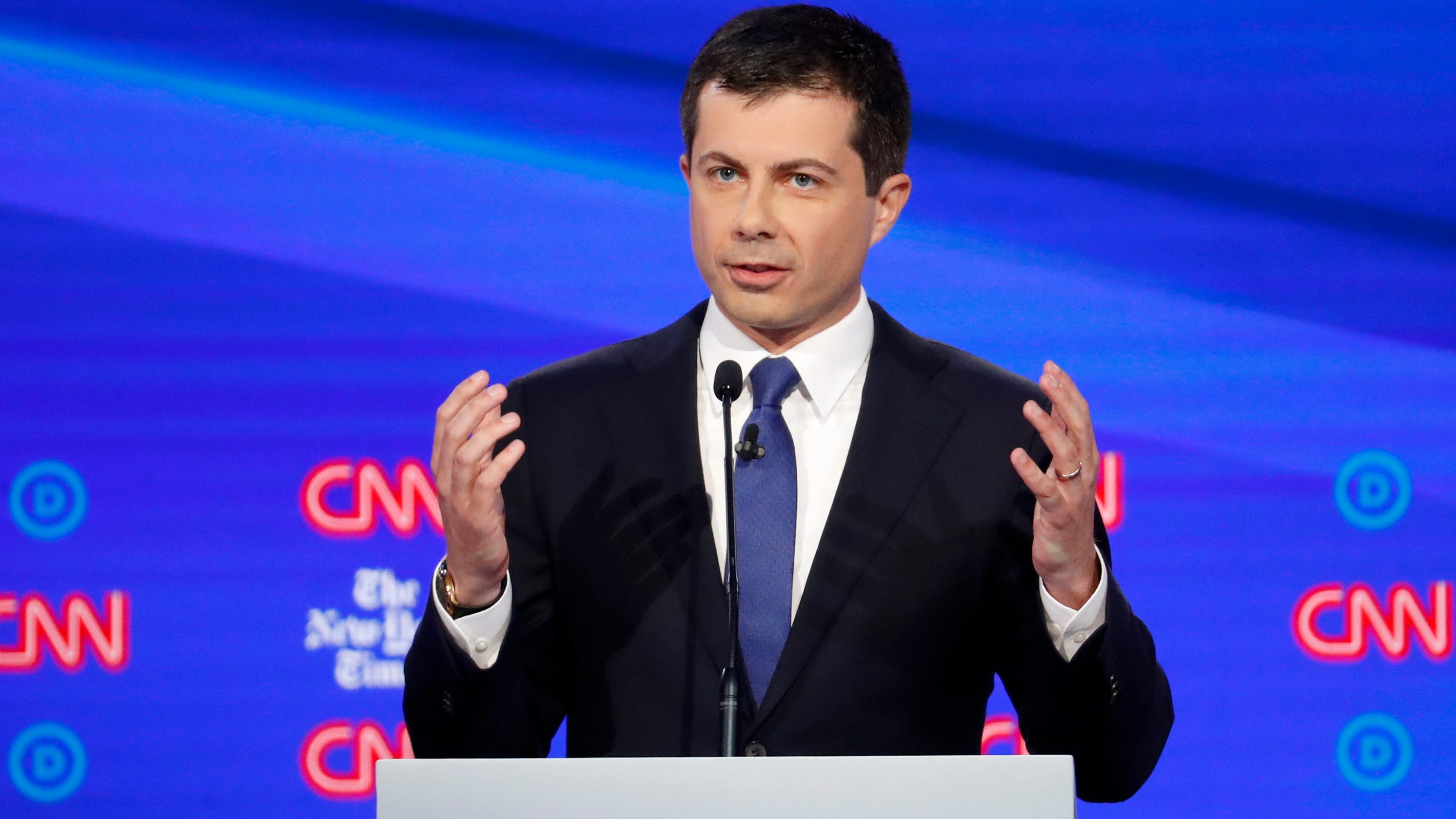Earlier in the year, South Bend, Ind., Mayor Pete Buttigieg came out of the gate charging hard into the Democratic primary. He quickly became a cause célèbre among some primary voters and big-time donors who appreciated his resume and background. Buttigieg, a veteran of the Iraq War, openly gay, and mayor of a midwestern town in the heart of Trump country offered a fresh new face on the national scene. Bundle all that with a polished delivery and great public speaking ability and you have what appeared to be a very strong contender for the 2020 Democratic nomination.
Just as quickly as Buttigieg rose, however, he also fell, quite fast. It wasn’t that he did anything wrong, but perhaps more so that he never caught fire with grassroots, Democratic voters. Buttigieg has been popular all year with Hollywood donors at high-dollar fundraisers, the “wine track,” as it’s called. Buttigieg’s problem has been connecting with the “beer track,” the average working-class voter in Iowa or New Hampshire, for example.
Earlier this week, Buttigieg may have finally had a moment that brought his stalling campaign back to life. Far removed from the controversy over a racially charged police shooting in his hometown of South Bend, Buttigieg took on an aggressive role Tuesday, and finally got some notice for it, as NPR pointed out after the debate:
The small-town mayor, who has become a darling of the donor class, controlled multiple exchanges and had a very strong night. In addition to taking on Warren on health care, he also went after former Texas Rep. Beto O’Rourke on his proposal to take away privately owned guns and Hawaii Rep. Tulsi Gabbard on her support of President Trump pulling U.S. troops out of Syria.
In exchange after exchange, Buttigieg appeared to be trying to rein in Democrats from getting too far afield with policies that don’t poll very well. For example, Medicare for All as an option to private health insurance, which Buttigieg supports, polls far better than Medicare for All as a replacement.
It wasn’t just NPR. The San Francisco Chronicle called it “Buttigieg’s night,” and declared him the “winner” of Tuesday’s debate:
South Bend Mayor Pete Buttigieg was the clear winner of Tuesday night’s debate. His verve at presenting a pragmatic, centrist world view (with attitude!) created a lane for moderate Democratic voters who are growing wary of former Vice President Joe Biden’s lackluster candidacy that is slowly but steadily sliding away from the top tier (and Tuesday only added to the impression).
Further along on the spectrum, The Week said Buttigieg’s performance drew praise from some unlikely sources — conservatives:
“Buttigieg, who opened with a civility pitch but got lost in the progressive shuffle, clearly sees an opening in the center again,” tweeted American Conservative editor and The Week contributor Jim Antle. Liz Mair, a libertarian and Republican communications strategist, praised Buttigieg’s answer to an impeachment question that came early in the debate, when the mayor observed that after an inquiry, “think about where we’ll be — vulnerable, even more torn apart by politics than we are right now.”
Jennifer Rubin, a conservative writer for The Washington Post, marveled at Buttigieg’s performance, tweeting that the mayor was “hitting this out of the park, out of the town.” Matt Lewis, a conservative columnist at The Daily Beast, added: “I don’t pretend to know how this exchange plays on the left, but … Pete Buttigieg is winning this debate.”
It’s clear that Buttigieg’s call for moderation and unity struck a chord with some segment of the population. When you have left-leaning major media publications like the San Francisco Chronicle agreeing with various conservatives in their assessment, then Buttigieg may have done something right on Tuesday night.
On the other hand, did he strike a chord with the right group? Getting media attention and praise has never been hard for Buttitigeg. Getting attention and praise from conservatives may be good for the general election. However, Buttigieg is running for the Democratic nomination, and he has to win over moderates and progressives to build a winning coalition.
Commentary Magazine, a conservative outlet, said Buttigieg won the debate by attacking progressivism, which may or may not be the headline the South Bend mayor was searching for:
The most remarkable thing about Buttigieg’s performance was not his effective rhetorical style, but the way in which he dispatched with one Democratic opponent after another by going after them from their right.
Unfortunately, the article is paywalled, but the point can be taken from their opening sentence about how Buttigieg stood out. There was no way that Buttigieg was going to “out-liberal” his opponents, so he decided to break in the other direction and place his bet on speaking to Democratic primary voters who aren’t entirely sold on Sanders or Warren and the leftward tilt of the party.
Whether it was battling Sanders and Warren over how to pay for Medicare for all, or battling with Beto over mandatory gun buybacks, Buttigieg staked out his turf and defended it strongly, for better or worse.
He also did not shy away from strongly criticizing President Trump as well:
There’s no denying this debate performance served Buttigieg well in terms of getting media attention, but will it help him with Democratic primary voters? That remains to be seen.
Donate Now to Support Election Central
- Help defend independent journalism
- Directly support this website and our efforts
